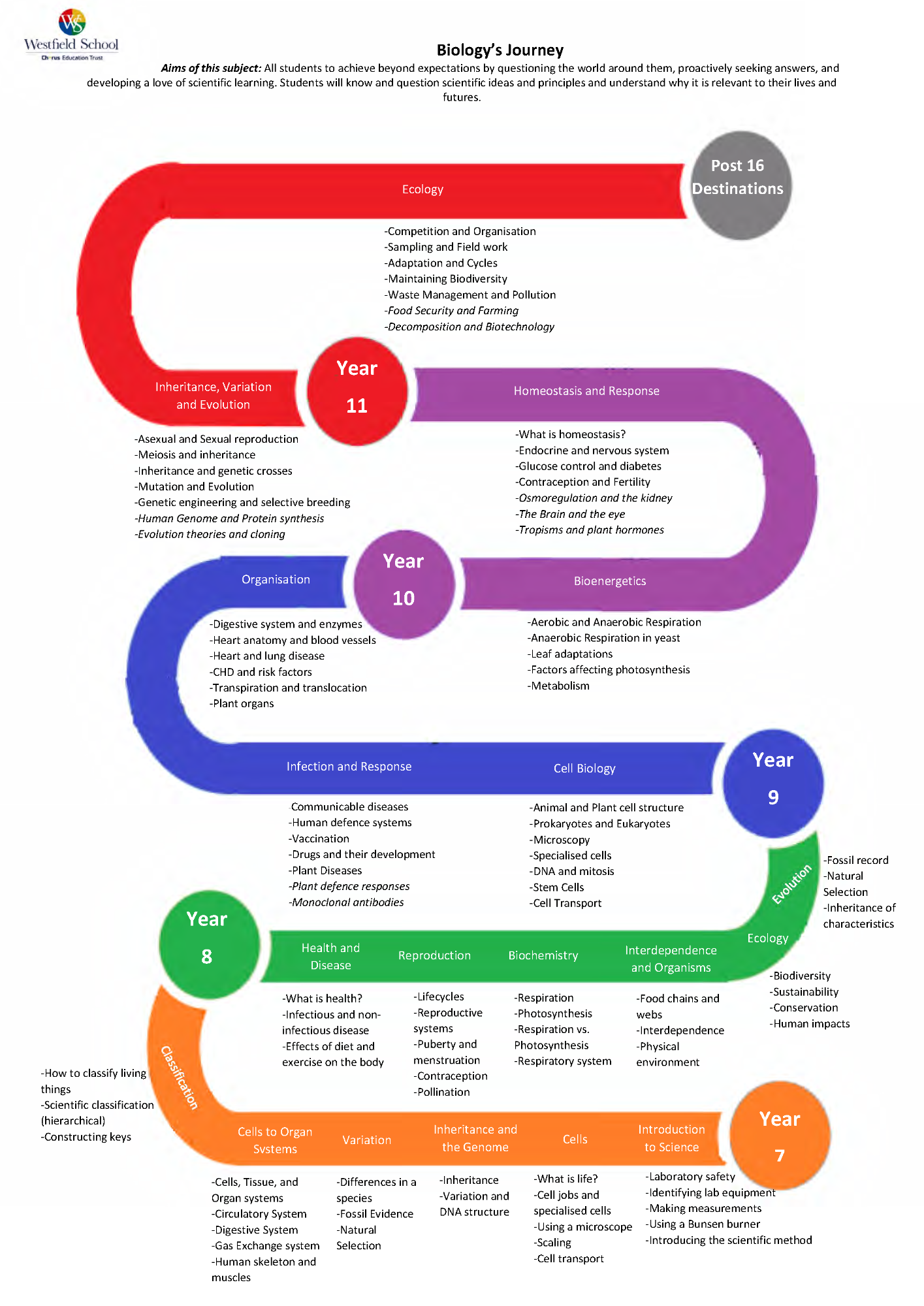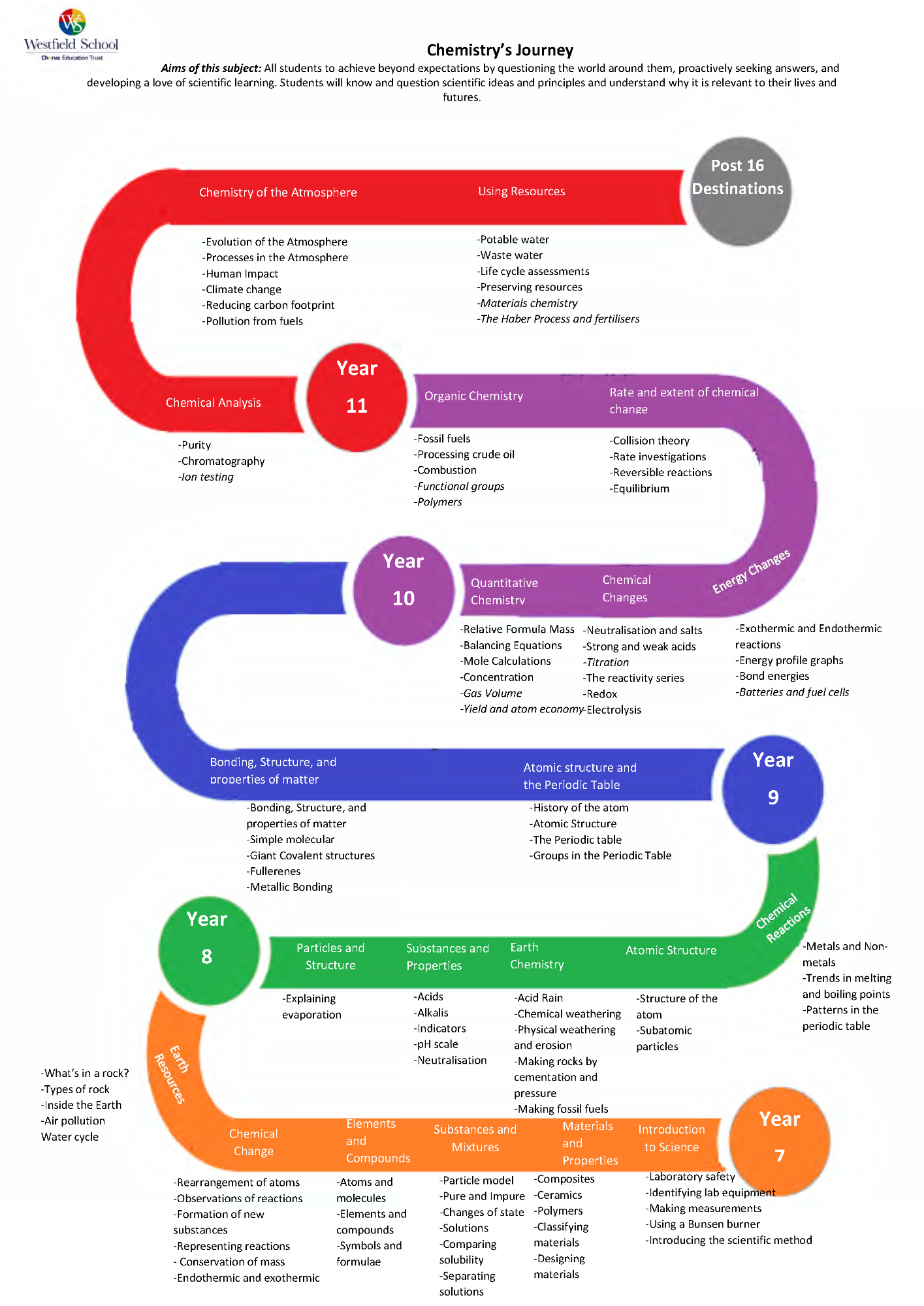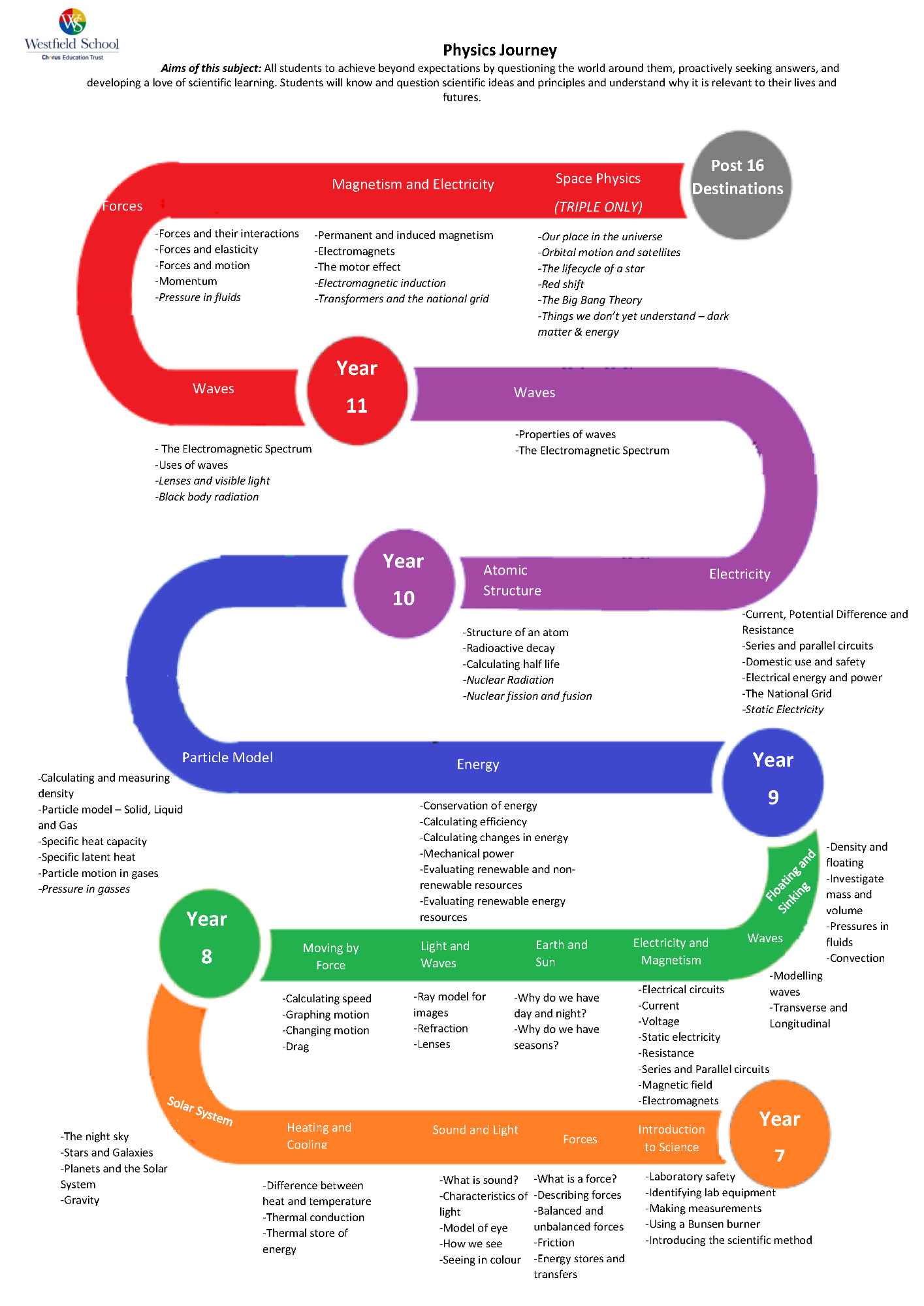Science
Overview
Introduction
The science curriculum is designed to enable and encourage students to:
- acquire a breadth and depth of substantive knowledge that cumulatively builds over time, across multiple science discipline and students can articulate scientific concepts fluently
- acquire a breadth and depth of disciplinary knowledge that cumulatively builds up over time, so students understand how science have developed theories and are able to replicate these enquiries
- Understand the importance of science to society and their worn lives in the past and the continuing importance of science in solving global challenges of the future
- develop a lifelong curiosity and passion for science, providing the foundation for everyday life and for a range of STEM careers that are crucial for economic, environmental, and social development of the community and beyond
Course leader
Mrs J Palethorpe
Curriculum
Course content
In Years 7-9, students study a broad range of scientific topics through an in-house scheme of work that has been developed using 'best evidence science teaching' (BEST) from the University of York research project. This has allowed us to use up to date research to address common misconceptions, develop effective diagnostic questioning techniques and ensure constructive approaches to building understanding for all students. Tests are given at the end of each topic at key stage 3 and there are also iterative assessments at Easter and at the end of the academic year. These assessments are used to support groupings and triple science entry.
Topics
Biology
Chemistry
Physics
Skills and requirements
Skills developed
Disciplinary knowledge is based on the national curriculum statements and have been categorised and ordered based on demand and established research, such as Blooms Taxonomy and work by Alex Quigley. Disciplinary skill is practised frequently alongside substantive knowledge as well as being a direct focus in transition topics at the beginning of each year.
- Working scientifically: students need to understand the process of how science understanding has come about, they need to understand the steps in investigations and how conclusions can be drawn
- Maths: students need to understand the importance of maths in science to demonstrate patterns, draw conclusions and explain relationships between scientific phenomena.
- Literacy: students learn to communicate abstract scientific concepts fluently to demonstrate their understanding and to ensure reliability in what they are communicating.



